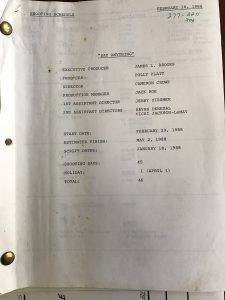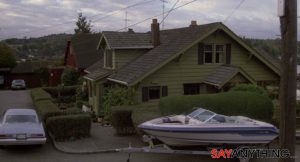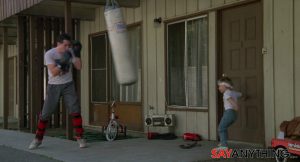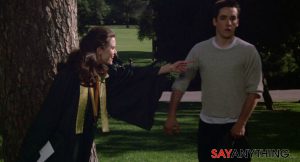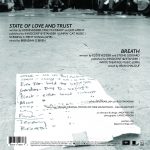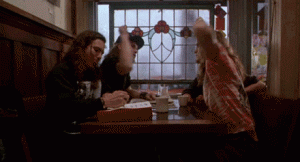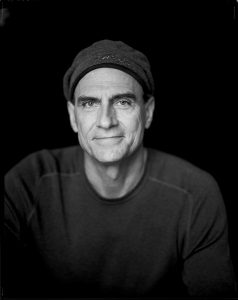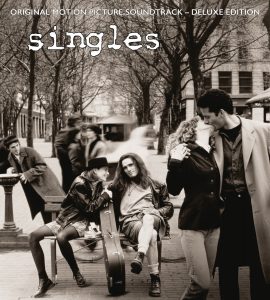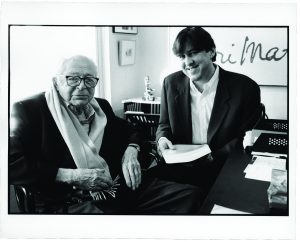
Billy & Cameron. Photo By Neal Preston
We lost the great Billy Wilder 15 years ago today. I thought it would be great to remember him with this 2005 Sight & Sound piece that Cameron wrote. It’s new to The Uncool and we hope you seek out a Wilder film to watch tonight!
Billy, how did you do it?
‘Elizabethtown’ director Cameron Crowe pays tribute to Billy Wilder
The first Billy Wilder movie to ever grace my family’s living room was Some Like It Hot. I was too small to catch all the subtext of those cross-dressing musicians, but this much was clear: something was going on inside that movie. A subversive sense of humour was at play, and those big laughs rocked our house. Later, someone pointed out that the same man made Sunset Blvd., another movie we all watched together as a family. Both were late-night ‘movies of the week’ on TV. The magic was palpable, even on that small screen.
I decided to become a film-maker to protect a script I’d written called Say Anything… A number of other directors had passed on it, and the script was about to fall into the hands of someone who cared a lot less about it than me. Wilder, a journalist who became a director for similar reasons, was one of the first masters I turned to in preparing to direct. Most writer-directors seeking inspiration eventually go to Wilder. I worked through his pictures one by one. His work was like a drug – character-rich stories filled with laughs and story turns so deft you could get a body rush sitting in the theatre. Eventually, I got to The Apartment, sadly after my father had passed away. Halfway through, it was already my favourite. When I heard the last line of the movie, “shut up and deal”, I realised where one of my dad’s favourite phrases had come from.
Part of the great fun of being a fan of Billy Wilder is that your favourite Wilder pictures change over the years. For me, sometimes it’s Love in the Afternoon; other times it’s A Foreign Affair; but usually I return to The Apartment. The characters, the score, the melancholy and the perfection of the script and performances… It’s hard to top. though the fizzy comic wallop of Some Like It Hot sure gives it a run for its money.
In my experience of interviewing him, Wilder usually chose Some Like It Hot or The Apartment as his personal favourite. His reasons he said, were mostly script-based. He just loved the structure and the successful collaborations with his writing partner Izzy Diamond. He often mentioned the ‘cracked mirror’ scene in The Apartment as one of his favourite moments in any of his films He explained that these pictures and Sunset Blvd. “just worked”. Of his audience favourites, the only one that seemed to displease him was Irma la Douce. As for his favourite actors, he always mentioned Lemmon and Matthau and, with an extra twinkle, Charles Laughton.
Double Indemnity survives because of its masterful victory of tone and performance and direction. For a still young director, it was a work of sly bravura. And Wilder’s favourite element – the inner ‘love story’ between Fred MacMurray and Edward G. Robinson – gives the movie its freshness and a dark kick. Many try for this tone; few get there.Wilder used to say that a masterful comic actor like Cary Grant would forever be beaten at the Oscars by a less talented, furrow-browed serious actor with a “physical ailment of some kind”. It was his way, I think, of waving the flag for what he felt to be a far more difficult exercise – comedy. He was a great fan of modem pictures that had a certain graceful comic perfection, like the Japanese film Shall We Dance?. He also loved the deep-tissue satire of American Beauty. As for his own legacy, Wilder sometimes scoffed, “Why would anyone care about me?” But, in fact, he’d noticed the parade of younger film-makers who cited him and made a point of telling me it genuinely surprised and touched him. “A lot’?” “A little,” he’d answer with a trademark flick of his eyebrow that indicated the opposite might also be true.
As Wilder once said of Audrey Hepburn, “there is only one”. But his lessons to other modern directors are clear: protect your script and your characters; observe the values of script structure… Take a look at the work of Wilder’s own heroes, from Ernst Lubitsch to William Wyler, and then go out there with a camera and tell your stories with glee and a ferocious lack of false sentimentality. But most of all, “don’t bore them”.
Courtesy of Sight & Sound – Cameron Crowe – October, 2005



